Our Location
41 Whiore Ave, Tauriko
Tauranga 3110
Seahorse Electric Kontikis will be closed for Good Friday (18th April) and the Easter Monday (21st April), to make it a long weekend.
It's the last long weekend before winter arrives, so it is a great chance to go Kontiki or Drone fishing - Good Luck.
Upload your favourite fishing pics, tell us a good yarn and you might get your story posted to our Facebook page or fishing gallery!
"*" indicates required fields
Please complete the form and we will send you a FREE brochure.
"*" indicates required fields
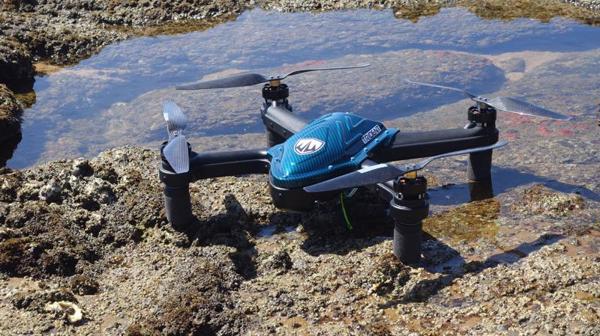
$7,600.00 inc GST
This is the perfect set-up for drone-based longline fishing. Match the powerful CutaCopter Trident Drone with the Seahorse Drone Winch and Drone Traceboard.
Fishing Drones combine the technology of avionics, electronics and robotics to create a flying machine. We add complexity by pulling a line from the beach over the water. When flying a drone, you are a pilot; as the pilot, you want to have the best, most advanced and most reliable technology working for you. This is what you get with the new Cuta Copter Trident.
The Seahorse Drone Winch is perfect for pulling in 25 hooks from 1000 metres. Compact and powerful enough to pull in any catch. The traceboard holds 26 short Seahorse tube traces, perfect for drone fishing and easy to store in a motorhome.
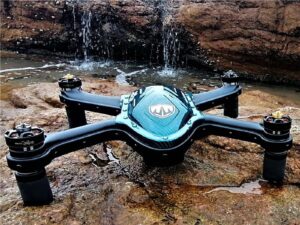 The Trident Drone With The Seahorse Drone Winch And Traceboard.
The Trident Drone With The Seahorse Drone Winch And Traceboard.
The Trident is our “GO-TO” fishing drone. It has the power and flight time to make drone fishing fun.
The drones have arrived! Please order now.
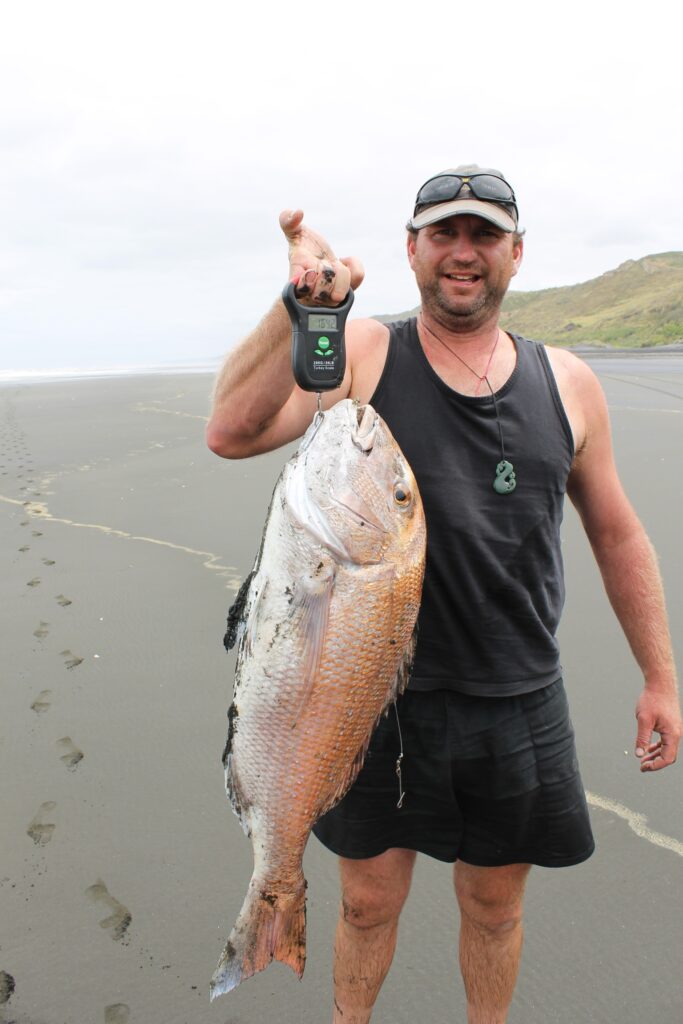 WHAT IS IN THE BOX
WHAT IS IN THE BOXTrident Drone
The 6-month warranty is extended to 12 months if registered with Seahorse
Seahorse Drone Winch
Seahorse Drone Traceboard
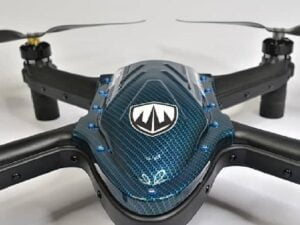 TRIDENT DRONE WITH THE SEAHORSE DRONE WINCH AND TRACEBOARD
TRIDENT DRONE WITH THE SEAHORSE DRONE WINCH AND TRACEBOARDThe Trident has the pilot and people’s safety at the centre of the design. The drone hardware, like the frame, bait release, flotation, etc., is only one part of the equation. How the drone flies and reacts to the pilot’s instructions is an essential part of the design of a successful drone.
The Trident Drone is a development of the EX-2, which was developed from the REVO4 and Matrix drones. The Trident is designed from the ground up as a fishing drone. Each new model from Cuta Copter is built on the knowledge and experiences gained from users from around the globe, and the aim is to build the best fishing drone possible.
The Trident is a powerful fishing drone that can lift large baits or payloads. The Trident will happily pull 25 hooks out to 1000 meters or carry a large single bait up to 3.5 kg over a shorter distance. Most people are finding 13 hooks (one side of the traceboard is a good working number, allowing a larger weight to be used). The Trident has a special flight mode to soften the responses that reduce the pendulum effect.
The number of sets you can do depends on the weight and drag of your payload, the distance of the set, and the wind conditions. If you are dropping your baits at 400 metres, if the payload/drag is 1kg, you should get up to seven sets, 2 kg drops the number to five, and 3.5kg loads will drop the sets to three.
The Trident is easy to fly, and the Skydriod App gives verbal and visual messages and warnings of any significant events. This means the pilot is always informed.
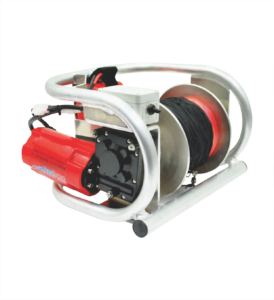 Seahorse Drone Winch
Seahorse Drone WinchThe Seahorse Drone Winch is a modified version of our successful Braid Winch. It brings all the advantages of a powerful Kontiki winch to drone fishing and is perfect for those who want to set multiple hooks along the way out to Sea. The Seahorse Drone Traceboard is perfect for holding drone tube traces.
The Seahorse Drone Winch comes with the following:
The Seahorse Drone Winch is powered by a 150-watt motor (like our other Seahorse™ winches) and uses an 11.4ah Black Lithium battery. This is enough for a day’s fishing. We re-designed the drum to have a larger core to hold the lighter braid we use with the drone. This reduces the rotation speed on deployment and ensures the drum retrieves the line quicker on retrieval.
At 12.5kgs with line and battery, it is light and easy to carry. We have made the Winch simple to use with a soft start three-speed control unit, ensuring full power is delivered to the motor no matter what. We have retained the Pulse function, allowing you total control over the Winch whenever needed.
The 130lb Braid is light enough for the Trident Drone to pull out, yet it is strong enough to cope with most of the loads you could get from doing long sets. Sometimes the conditions or weeds in the water can cause extra load on the line, and the 130lb B/S is strong enough to cope with most situations (if care is taken).
The polyester line has 30 loops tied into it. This is sufficient for 25 hooks, three weights, and connecting to the drone and the braided line. If you are fishing with fewer hooks, the line can be shortened to the length you require. The Longline clips are easy to clip onto and remove from the loops. Simply bait up and connect the traces and weights to the line. Connect the line to the drone, and away you fly. With smooth (consistent speed) flying, there is no need for any drag on the line, and the large diameter drum allows fast deployment of the line out to 1000 meters. Under the 1000 meters of 130lb B/S braid, there are 200 meters of 300lb B/S braid, and the change in line thickness is a clear indication the end is near, and it’s time to drop the line. Finally, there are 50 metres of monofilament nylon that binds the braid to the winch drum.
The winch has the advantage if you are doing long sets with 13 or more hooks. The large drum manages the line better and can pull everything back from that distance.
The top-of-the-range Electric Fishing Reels can hold up to 1100 meters of 80lb braid, but they cost the same or maybe more than the winch. The smaller electric reels can hold up to 650 meters of 80lb braid, and we find the smaller electric reels are better suited to shorter (up to 500 meters) runs or with fewer hooks. Electric reels need a battery to power them. Lithium batteries are lighter, but Lead acid are cheaper.
Manual fishing reels can also be used, but once you get beyond 300 meters, winding the line in can be tedious.
Some people find the winch is easier to store in a motorhome than a long rod and electric reel.
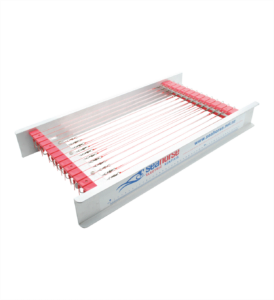 Seahorse Drone Traceboard
Seahorse Drone TraceboardThe Drone Traceboard is 300mm shorter than the standard Seahorse Traceboard and holds traces 500mm long. The traces have tubes on them to reduce twisting and tangling as the drone flies the baits out to Sea. The traces have longline clips, which are easy to clip on and remove the traces from the looped line.
The traceboard comes with 26 tube traces.
The 6oz breakaway sinkers also have longline clips and a swivel. It is recommended to place a rubber band around the breakaway spikes to increase the breakaway pressure. This will allow the line to be pulled tight from the weights back to the winch.
With the speed of the drone, you need to have everything set up before you take off. Some people stretch the line-up and down the beach, but the seagulls will attack your baits and get everything tangled. It is best to lay the traces out side by side with the polyester line looping away from the traces. With liftoff, the traces will then be lifted up into the air by the drone, not dragged across the beach from where they were lying to where the drone is.
As the bait starts lifting into the sky, you can start flying the drone forward (and up), but care is needed to ensure the line comes off the winch in a consistent manner.
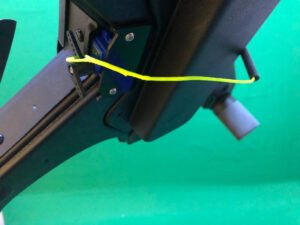 RELEASE SYSTEM
RELEASE SYSTEMThe release line is permanently attached to the left bottom side of the drone, and the release is on the right-hand side of the drone.
A loop at the end of the release line loops over the release horn’s forward arm. Ensure the line stays forward of the release horn so it doesn’t tangle on release. It is simple yet extremely reliable.
The Trident has 15-inch carbon propellers which attach to the motors with a simple screw-on attachment. The motors are counter-rotating. The propellers screw on in the opposite direction to the rotation of the motor. The front left will screw on counter-clockwise, and the front right will screw on clockwise. The propellers will self-tighten as the motors are running. The motor hubs are colour-coordinated to match the correct propeller to the correct motor.
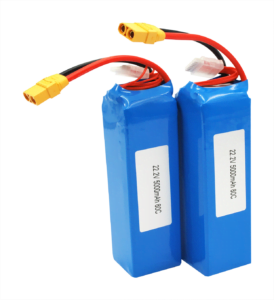
The Trident is supplied with two high-performance 5000mAh (5AH) Lithium Polymer batteries. These high-performance LiPo batteries provide the power needed to pull your baits out to sea. The batteries are fitted with the T-90 connector.
The Trident comes with a smart charger for the LiPo Batteries. This charger enables the LiPo batteries to be charged in a balanced mode and put the batteries into storage mode.
This charger will enable you to correctly maintain your batteries to ensure you maximise their operational life.
The charger can charge different types of batteries, and it operates on both AC (mains) and DC (12v battery) power. This means you can charge your batteries at the beach if you have a suitable power supply.
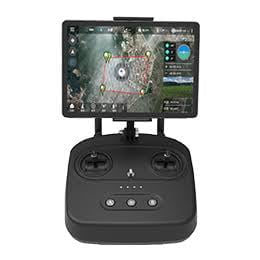 SKYDROID TRANSMITTER
SKYDROID TRANSMITTERThe SkyDroid Transmitter is the handheld controller of the drone. The joysticks are spring-loaded and self-centring. When flying, this means the Trident will always return to a stationary hover if you release the sticks. It also means you are not having to manage the throttle or yaw to maintain an altitude and direction. You can concentrate on flying the Trident where you want it to go. The short switch levers and flush-mounted buttons significantly reduce their chances of being damaged or broken.
The Transmitter also works with the SkyDroid App, which can be loaded onto your phone.
The SkyDroid Tower App can be downloaded and installed onto an Android device, such as a Samsung phone. Unfortunately, Apple phones do not recognise the Bluetooth chip in the Skydroid Transmitter. We have found the small Samsung phones work well and can be connected via Hotspotting to your Apple phone to gain Internet access.
The big advantage of using the Skydroid Tower App is the additional information that is displayed on the screen, including
Battery voltage
Flight Mode
Altitude
Distance from home
Flight Telemetry
and a Snail Trail of the flight.
Creating flight missions and activating and flying the mission from the device is also possible.
The App can be downloaded from the Seahorse website, including from the bottom of this page.
The App can also show the video feed from the onboard camera if you use the supplied USB cable. Otherwise, you can use the Bluetooth connection to connect the App to the transmitter, enabling the flight telemetry to be displayed on the screen.
In the App, click on Connect, situated in the bottom left-hand corner
Select the transmitter (for example R4100-Trident) to connect, and once the drone is powered (battery connected and quick switch in), the telemetry data will be transmitted to the screen.
There are two main screens we will use. Flight Data and Editor. The other screens are linked to set-up and aren’t needed for day-to-day use.
The Android device doesn’t need cellphone coverage. All it needs is Bluetooth to connect to the transmitter and sufficient power to run the live video feed if you wish to use that feature. We have found a 4 to 6-inch screen is the best for both seeing the information and not being so big it gets in the way.
The Skydroid App allows “missions” or fully automated flights. This involves setting one or multiple waypoints on the screen and any actions required, such as dropping the bait. Once activated, the Trident drone will take off, fly out to the waypoint, drop the bait and then return to launch and land all by itself.
 WATERPROOFNESS
WATERPROOFNESSThe Trident has the best waterproofing of any Cuta-Copter and built-in floatation. The Pixhawk flight controller and electronics are housed in a special low-profile sealed (IP67) compartment, allowing the GPS receiver to be placed in the nose of the Drone to get the best signal. Additional closed-cell (floatation) foam inserts exist in the main body and motor arms. This provides waterproofing from rain, washing by hand and floating on the surface of the water. It does not provide protection if the drone crashes into the sea, and the force of the impact will force water past the seal. Long-term exposure to salt water will cause extensive damage to the motor and wiring of the drone. The Trident is not designed to be landed in the water. The waterproofness provides a high level of protection from the marine environment. – Our advice is – do not take your drone swimming.
. Please note that the drone would need a full wash in a salt removal (Salt Away) product if it did go into salt water.
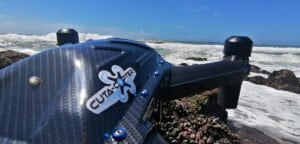
Flight Controller – Pixhawk® brings you the ultimate in performance, stability and reliability in all aspects.
The Pixhawk® is ideal for corporate research labs, academic research and commercial applications.
Operating System – the Pixhawk flight controllers use the Arducopter Open Source autopilot system. ArduPilot is a trusted, versatile, and open-source autopilot system supporting many vehicle types: multi-copters, traditional helicopters, fixed-wing aircraft, boats, submarines, rovers and more. The source code is developed by a large community of professionals and enthusiasts. it is one of the most advanced autopilot systems available.
Body Design – The body design of the Trident has been developed to reduce aero drag. This ensures longer flight time as the motors do not need to work as hard to pull the Trident through the air. The overall footprint is slightly smaller than the previous Cuta Copter drones, but the motors are more powerful and efficient, allowing more sets from the batteries.
Camera – The Trident is fitted with a tilting camera. The camera tilts from looking forward to looking straight down. Looking forward is great as you fly out to the point of interest, and looking directly down gives you a chance to check out any new fishing spots. The video is displayed on the SkyDroid Tower App.
SkyDroid T10 Transmitter – This high-quality transmitter is fitted with sand covers over the gimbals to improve overall weather resistance. Flush-mounted buttons and low-profile toggle switches have been used to prevent damage. The 2 x 18650 lithium batteries provide greater than 20 hours of radio time on a full charge. The T10 Transmitter also accepts telemetry data and live video feed from the Trident, which it passes onto the SkyDroid Tower App on an Android device.
SkyDroid Tower App control – The Android App displays a range of flight telemetry data, including battery voltage, distance from home and altitude. It also allows the user to plan and fly missions, plus the App can control and change various functions, such as arming, disarming and selecting the flight mode.
The Tower App also gives access to the parameters of the flight controller. This is for advanced users only.
Water Proofing – The main electronics are housed in a separate compartment, giving low-level waterproofing against rain, hand washing and short-term floating on the surface. It will not protect the electronics in a crash into the ocean or from damage due to long-term exposure to saltwater.
Double flotation – The 3 air chambers provide the first level of flotation protection. The Trident is also filled with laser-cut foam buoyancy, providing a second level of flotation protection. The landing feet also provide additional floats.
Quick Switch – The installed quick switch limits the need to open the battery bay between bait drops; the craft is quickly switched on and off using the supplied quick switch.
Backpack – The Trident Cuta Copter comes with a backpack carry case that will carry the Trident, the landing pad, batteries and props. It can also carry the charger and Android device.
Real-time Video Stream – The Trident is equipped with an HD 720p digital reef spotting camera with real-time video transmission of up to 1000 metres. Camera settings like brightness, contrast and saturation can all be adjusted via the APP. Recordings of the Video feed can only be done in Skydroid FPV (another App) and is not available in SkyDroid Tower.
SkyDroid FPV – This App can record the live video feed to a suitable Android device. The Android device needs to be connected to the transmitter by the supplied USB cable, and it can run in the background and record while you are flying.
Robust Design – Cuta Copter has always prided itself on building the toughest drones on the market, and the new Trident takes it a step further with even greater survivability.
GPS – The New advanced PIXHAWK 4 GPS enables concurrent reception of up to 3 Global Navigation Satellite Systems ‘GNSS’, not just two, such as GPS and GLONASS. It deals with GPS, Galileo, GLONASS and BeiDouh. The GPS has also been located at the highest point of the craft for the best satellite reception and maximum separation from other electronic parts to improve reliability and precise landings.
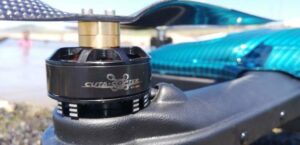 Landing in water – the Trident can land and take off from water. Rough water will impact the ability of the craft to take off, as waves will interfere with the prop lift. Following saltwater exposure, extreme cleaning is required with a product like Salt-Away. Metal parts in the motors will corrode and reduce the drone’s life if not treated properly. Intentional landing on water is not recommended for everyday use. The battery compartment is not waterproof, which could lead to the battery failing.
Landing in water – the Trident can land and take off from water. Rough water will impact the ability of the craft to take off, as waves will interfere with the prop lift. Following saltwater exposure, extreme cleaning is required with a product like Salt-Away. Metal parts in the motors will corrode and reduce the drone’s life if not treated properly. Intentional landing on water is not recommended for everyday use. The battery compartment is not waterproof, which could lead to the battery failing.
Follow-Me mode – In this mode, the drone will follow the location of the transmitter or phone.
Boat Landing or Return to Me mode – this feature allows the drone to land (RTL) at the location of the pilot and not at the take-off point. This function is useful when using the drone on a boat which has drifted away from the original take-off coordinates or if you want the drone to land away from its launch area (away from the fishing rods). This is called ‘Return to Me’ in the Skydroid Tower app.
Click to Save Waypoint Setting – It is possible to set a waypoint using the transmitter to ensure the next set returns to the same spot. Once the waypoint is set, the flight controller automates and controls the next flight. This is useful if you are dropping burley in a particular spot or want to target the same location.
Missions – The SkyDroid App allows you to create and fly missions. This can fully automate the flight so the Trident does not require any input from the transmitter. A mission could include taking off, flying to a selected waypoint, dropping the baits, returning home, and landing.
MULTIPLE SAFETY FEATURES
APP display and voice. Visual and voice messages are broadcast to keep the pilot informed about all aspects of the flight. The system will warn you by voice and display that the battery is low, high, and voltage or when Magnetic interference is detected. – a set of earplug headphones could be useful to hear the messages.
Thrust Loss Detection will automatically release the bait and RTL.
Low Battery Failsafe– The Low voltage failsafe level is set at 22 volts. On reaching this, the bait/line will be released automatically, and the Trident will automatically Return to Launch (RTL).
Loss of signal Failsafe – If the Trident loses connection with the transmitter, the bait/line will be released automatically, and the Trident will Return to Launch (RTL).
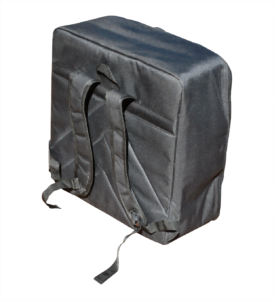 World Magnetic Database – This means the compass calibration is only required to be done once – We will do this at the Seahorse Factory.
World Magnetic Database – This means the compass calibration is only required to be done once – We will do this at the Seahorse Factory.
Launch Prevention mode – The Trident will not ARM or start the motors unless everything works correctly. This includes having sufficient GPS Satellite connections and sufficient voltage in the battery.
Anti-Pendulum feature – The POS mode has a softer and slower de-acceleration to assist in limiting the degree to which a pendulum motion can occur with the bait. This allows for shorter leaders to be used with safety.
RTL speed – Return to Launch ‘RTL’ speed has been increased to get the drone off the water as soon as possible.
Landing Detection – The new landing detection feature DURING AUTO-LAND will shut off the motors as soon as the drone detects a landing. Motors will also be shut off if it detects a crash. The Trident will begin its descent quite fast for RTL landings, slowing down for the last 5 metres. For manual landing, it is required to hold the left stick down. Do not move the right stick once the drone is on the ground.
Distance and Altitude Geo-fence – Although the Trident can operate up to 1.5kms- the Geofence settings are set at the factory to 1200 metres distance and 60 metres altitude. This geofence parameter allows enough battery time for the drone to return safely when enabled by the low battery self-protect function.
Magnetic interference monitoring – Auto adjustment and verbal warnings.
BlackBox recording – The BlackBox will record the flight telemetry, which can be accessed by Seahorse to assess flight performance and identify any issues.
The user accepts all liability and responsibility for the safe operation of the Drone. The user understands that Seahorse cannot be held responsible for any damage resulting from an accident as well as any consequential damage.
The pilot’s responsible for ensuring the drone is in good working order before liftoff. Once the drone is flying, it is the pilot’s responsibility to ensure the drone is flown safely. Any damage caused to the drone while flying is the responsibility of the pilot and is not covered under warranty.
Register your drone with Seahorse to extend your warranty to twelve months.
Seahorse Equipment Limited maintains a 6-month return-to-base warranty for CutaCopter Drone products from purchase. This will be extended to 12 months on registration of the owner’s details with Seahorse.
The warranty covers repairing or replacing faulty parts due to faulty workmanship or materials.
The warranty does not cover normal wear and tear from use. It does not cover damage caused by misuse, misadventure or water damage. The warranty does not cover the loss of a Drone, line or accessories. It does not cover damage caused by misuse or saltwater damage. The warranty does not cover damage that occurs while the drone is flying. The pilot’s responsible for performing a pre-flight check to ensure the drone is airworthy.
Seahorse retains the right to determine whether to repair or replace the faulty part. Where it is possible, Seahorse will review the flight logs to identify the reason for the failure.
The item(s) in question must be returned to the Seahorse factory at the owner’s cost. Seahorse will then assess the item(s) to determine whether or not there is a fault and remedy if required.
Please note the warranty will become invalid if user modifications are made to the Drones, or non-original CutaCopter or Seahorse parts (for example, batteries) are used in or with the Drones.
The warranty does not cover damage caused by accident, misuse, unauthorised repairs, or not taking reasonable care. Seahorse maintains the right to determine whether to repair or replace any parts subject to a warranty claim.
Drones are generally covered under Household contents insurance, but different companies have different cover and different limits on what they will pay.
Seahorse recommends you register your Drone with your insurance company and get it specified on the policy. – The serial number for the Drone is displayed in your Transmitter.
Talk to your insurance company about any special requirements to have the drone covered while you are using it. Generally, you will need to be flying within Civil Aviation Authority rules to be covered.
It is a well-known fact for drones that gravity works harder over water. If something goes wrong, it could be a wet landing. It is important that your Drone is operating correctly and everything is in excellent working order.
Seahorse will be offering an annual service that will cover a complete service and performance check of the Drone. Our fully trained staff will also be able to perform any repairs, servicing or testing required.
The service will include
The Trident Kontiki Drone is manufactured in South Africa by Cuta-Copters. Seahorse and Cuta-Copters have customised their Trident to meet the unique requirements of New Zealand Kontiki Fishing.
Cuta-Copter has been a leading manufacturer of fishing drones since 2014 and has continued to develop and innovate its product making it what it is today. We believe Cuta-Copter makes one of the best-performing and most affordable fishing drones anywhere. That is why we are offering them under the Seahorse brand.
Reviews
There are no reviews yet.